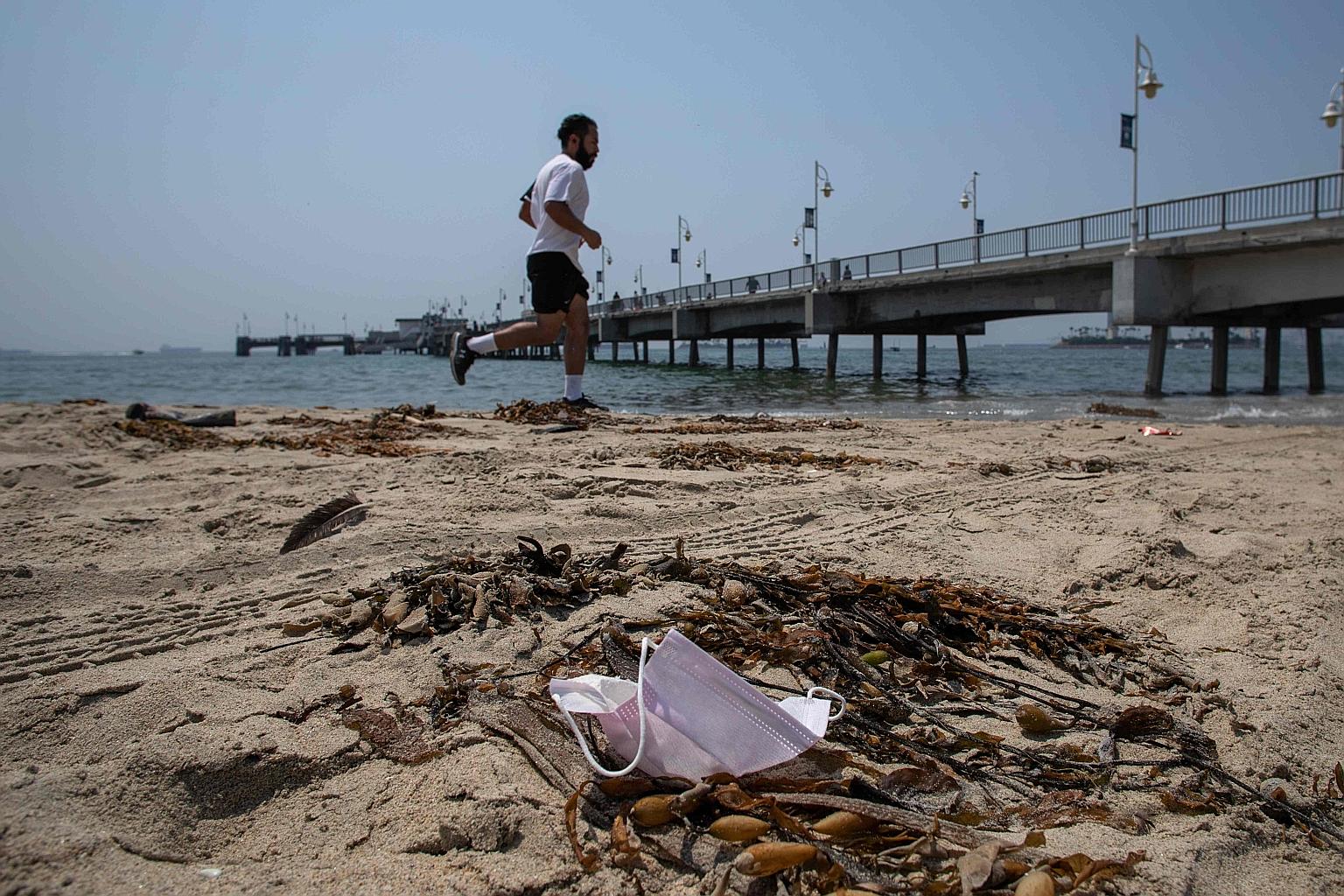Coronavirus Vaccines
Reusability of surgical masks under debate amid environmental worries
Sign up now: Get ST's newsletters delivered to your inbox

A discarded surgical mask in Long Beach, California. As mask usage increases, the fact that so many disposable plastic masks wind up in the oceans has become an environmental issue.
PHOTO: AGENCE FRANCE-PRESSE
PARIS • Health authorities say the most widespread anti-Covid-19 weapon - surgical masks - must be thrown away after a single use, but environmental concerns are pushing some scientists to question this recommendation.
As the virus continues to spread, masks have become mandatory in many public places. But cost, and the fact that so many disposable plastic masks wind up in the oceans, has become an issue.
One alternative is reusable cloth masks, but many people prefer single-use masks because they are lighter and individually cheaper.
The World Health Organisation (WHO) has said medical masks are for single use only, advising that they be discarded "immediately".
But faced with mask shortages early this year, the WHO allowed, in a June report, for "exceptional procedures" to disinfect throw-away masks for reuse.
The United States Food and Drug Administration recommends - in emergency circumstances - hydrogen peroxide vapour to decontaminate N95 masks.
Other methods to purify single-use masks include exposing them to high temperatures or ultraviolet radiation. But these methods are inconvenient for people at home, said microbiologist Denis Corpet who is a member of Adios Corona.
Adios Corona - a group of scientists who provide Covid-19 information to the public - recommends "placing the mask in a paper envelope" and "leaving it for seven days".
"Several scientific studies show that viruses are almost all dead on a mask after seven days," said Dr Corpet.
This method, however, is not appropriate for healthcare workers exposed to high viral loads.
Mr Peter Tsai, the inventor of N95 electrostatically charged filter material, agrees with the seven-day method. But he suggests leaving used masks out in the open for a week before reuse, a cycle he says can be repeated five to 10 times.
Mr Tsai said disposable masks can also be placed in the oven - ideally between 70 deg C and 75 deg C - which will not burn the plastic but is sufficiently hot to kill the virus.
French consumer rights group UFC-Que Choisir washed surgical masks at 60 deg C, put them in the dryer and ironed them.
After 10 such cycles, the masks still filtered at least 90 per cent of 3-micron particles, which was "at least as efficient" as the best cloth masks, it said.
But not all scientists agree.
Dr Ye Kaiming from Binghamton University in New York said: "Washing the mask at home could potentially cause a secondary contamination and spread the virus if washing is not set appropriately."
Until more research is published on the matter, official advice from health authorities is not set to change.
AGENCE FRANCE-PRESSE


